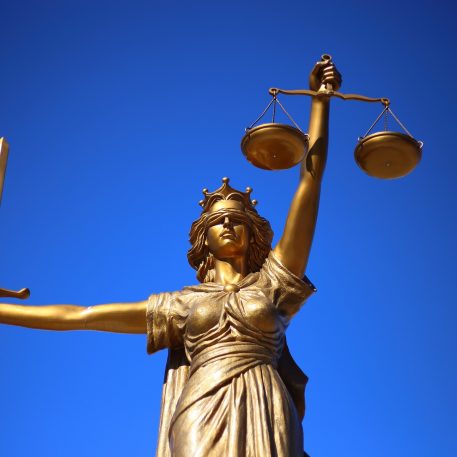
Presidential pardon to be scrutinised by Supreme Court. HFHR’s opinion
The Helsinki Foundation for Human Rights has submitted an amicus curiae opinion to the Supreme Court in the matter of admissibility of the President’s pardon granted to a person convicted in a non-final judgment. A panel of seven judges of the Supreme Court will hear the matter this Wednesday.
Criminal proceedings
In November 2015, President Andrzej Duda pardoned Mariusz Kamiński, ex-chief of the Central Anti-Corruption Bureau, and three CAB officers who were handed a non-final sentence of a district court. The pardon raised significant controversy with many commentators arguing that the head of state may only use this prerogative after a final sentence is issued. However, a regional court ruled in March 2016 that the pardon was effective and discontinued the criminal proceedings in the officials’ case. The ruling was challenged by auxiliary prosecutors who filed complaints in cassation. On 7 February 2017, a three judges panel of the Supreme Court heard the complaints and referred a question of law to the Court’s panel of seven judges, asking whether the President could legally pardon persons convicted with a non-final judgment and what would happen if the pardon was considered illegal.
In its amicus curiae opinion, the HFHR opted for limiting the applicability of the presidential prerogative only to cases of final convictions.
Pardon: constitutional position
First, the Foundation commented on the wording of the constitutional provision discussing the power of pardon, which does not offer any definition of the term. However, the absence of a definition does mean that the provision may be interpreted freely: it would be entirely unreasonable to argue that pardon may be granted to a losing litigant in a civil or administrative case. According to the HFHR, the term “pardon” must be associated with serious legal consequences experienced by an individual, and such consequences are only felt by persons convicted by a final judgment. Unlike the individuals described above, a person with a non-final conviction is legally presumed to be innocent.
The Foundation also pointed to the fact that the purpose of a presidential pardon is to remit or commute a penalty rather than to proclaim a convicted person’s innocence.
Pardon and judicial independence
Awarding the President the power to grant pardons to persons convicted by a non-final judgment (which effectively discontinues any criminal proceedings conducted against such persons) would also be a disproportionate interference with the independence of the judiciary. If equipped with that power, the President would be able to order courts to discontinue proceedings in any case, or even prohibit the initiation of such proceedings, which would deprive the judicial branch of its exclusive competence to decide cases presented to the justice system.
Pardon and victims’ rights
A broad interpretation of the power of pardon would abolish the remedies available to crime victims. By exercising this power, the President would be able to deprive victims of their right to have their appeals heard by an appellate court.
Pardon and defendant’s rights
The Foundation also observed that the adoption of the extensive interpretation of the constitutional provisions on pardon could possibly infringe on the defendant’s rights. By way of granting a pardon, the President could deprive a defendant of the right to have their case heard by the second instance court thus prevent the defendant from securing an acquittal in appellate proceedings. As there is a distinction between pardon and final acquittal, either measure has different legal consequences. Furthermore, it is unclear if a defendant would be able to refuse to accept a pardon from the President.
Effects of pardon granted before final conclusion of proceedings
Given all the arguments presented above, the HFHR stated that the President did not have the power to pardon a person convicted by a non-final criminal judgment. However, if such a pardon is given, it will arguably bring legal effects only after the criminal proceedings are finished and the pardoned person is handed a final conviction.
The amicus curiae opinion is available for reading here.


29.05.2017
 Cookies EN
Cookies EN